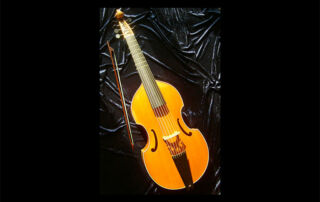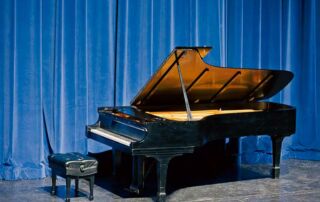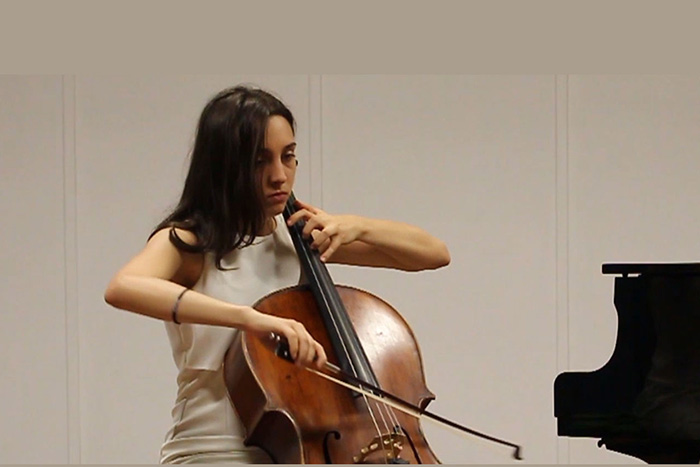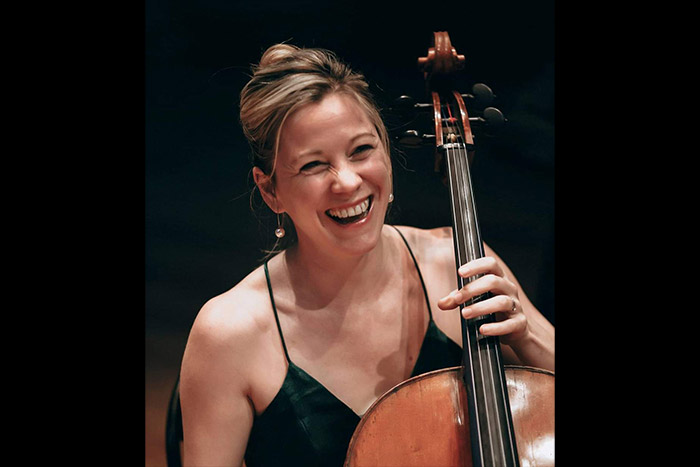Stefan Joubert : Hello Grégoire. Tell me about yourself and how you became interested in playing the saxophone.
Grégoire : Hello, at first I hesitated between the trumpet and the saxophone. I took a trial lesson on each when I was 7 and chose the younger, nicer teacher. He happened to be the saxophone teacher. So for me, the quality of the teacher/student relationship is very important.
Stefan Joubert : Absolutely, I couldn't agree more!
Stefan Joubert : How did you experience the first 2 or 3 years of learning the saxophone? Was it difficult?
Grégoire : I confess I don't have many precise memories of my early years. I just let myself go. But I have positive memories. I enjoyed going to lessons, even if the saxophone was a bit heavy to carry for my young age.
Stefan Joubert : Did you start out with jazz or classical?
Grégoire : I started with classical music, mainly because that was my teacher's specialty. Later, the more he became interested in jazz, the more he taught it to me. My first memories of jazz go back to the age of 12-13. My teacher would teach me the melodies of simple standards.
Then, around the age of 15-16, we delved deeper into jazz, slowly picking up themes and solos by Charlie Parker in particular.
Stefan Joubert : It makes perfect sense!
Stefan Joubert : Would you use a similar approach with an adult wishing to learn jazz saxophone?
Grégoire : Yes, by knowing just a few notes on the saxophone, we can already play standards that have a simple theme. I'm thinking of Herbie Hancock's "Cantaloupe Island", for example.
Stefan Joubert : This makes perfect sense, as the student feels he's making progress too!
Grégoire : The most important thing is to play a repertoire that appeals to the student. Even on pop songs, we can practice improvisation.
Stefan Joubert : How do you help a student who really wants to master the jazz repertoire? Do you work a lot on II V I studies? What approach do you use?
Grégoire : There's no single miracle approach that will work with all students. But it's true that working on the recurring cadences of the jazz repertoire, such as II V I, will enable the student to learn multiple standards fairly quickly.
Stefan Joubert : Yes, it's true!
Stefan Joubert : What strategies do you use to keep adult students motivated and committed to their saxophone studies?
Grégoire : I attach a great deal of importance to motivation in learning. I'm currently writing a dissertation on the subject, drawing inspiration from management research and discussions with coaches for musicians. For example, at the end of each lesson, I usually send the student 3 "discovery" pieces, so that they can gradually build up references in terms of sound, repertoire and taste.
The parameter that also seems to me to be crucial in motivation is pleasure. So I try to show students how to enjoy themselves, even when it's a sound or scale exercise.
I also give them methods so that they can organise their work and see their progress objectively.
Stefan Joubert : It's brilliant!
Stefan Joubert : How do you deal with common physical problems, such as embouchure fatigue, that adults may encounter?
Grégoire : The advantage of the saxophone over brass instruments is that the embouchure doesn't tire as quickly. And the advantage of the jazz saxophone over the classical saxophone is that the embouchure is much more relaxed. I remember when I did a lot of classical saxophone, I had to put cigarette paper over my lower teeth to avoid hurting my lip. In jazz saxophone, I don't need it at all.
The teacher's role is also to prevent injuries that can occur if you're too tense and uptight. That's why I'm also vigilant about the student's posture and relaxation.
Stefan Joubert : Yes, it's very important!
Stefan Joubert : Can you share your views on the importance of music theory and sight-reading for adult saxophonists?
Grégoire : One of the aims of music teaching, in my opinion, is to enable students to become autonomous in their musical practice. Sight-reading enables you to play with other musicians fairly quickly. But it's not essential. We can also play with other musicians on well-known standards, without scores, in jam sessions for example. That's why it's important to know what the students' objectives are, so that I can adapt to them, and not teach them something that doesn't interest them.
Generally speaking, music theory enables us to speak a common language, so that we can analyse mythical solos, for example, and draw inspiration from them in our own playing. But there are some very good jazz musicians who don't know how to read music. It's a music that's transmitted a lot orally, by listening and reproducing.
Stefan Joubert : Thank you so much for sharing your wisdom with us, Grégoire!
Stefan Joubert : How do you approach teaching adults with busy schedules and limited practice time?
Grégoire : As everyone knows, practising a little regularly rather than a lot before class is more effective. But in addition to efficiency, staying in touch with our practice on a daily basis also helps to maintain motivation. Setting a goal of at least 5 minutes of saxophone playing a day is more than enough. Sometimes the 5 minutes will be exceeded because we want to keep practising.
Stefan Joubert : Thanks Grégoire, that's good advice!
Stefan Joubert : We'd also like to thank you for your time and for sharing these wonderful tips with our readers.
Grégoire : Thank you, it was a pleasure.
Grégoire is a saxophonist, composer and teacher. He holds degrees in jazz and pedagogy from the Conservatoire National Supérieur de Paris. He also studied musicology at the Sorbonne, classical and jazz saxophone at the Conservatoire Régional de Paris, and at the Pôle Supérieur de Paris Boulogne Billancourt. He studied saxophone with Baptiste Herbin, Stéphane Guillaume, Jean-Charles Richard and Christian Wirth, and arranging with Pierre Bertrand, Emil Spanyi and François Théberge. Grégoire composed for a short film entitled "Mirages" in 2020, and for a play entitled "Le Faucon" in 2023.









